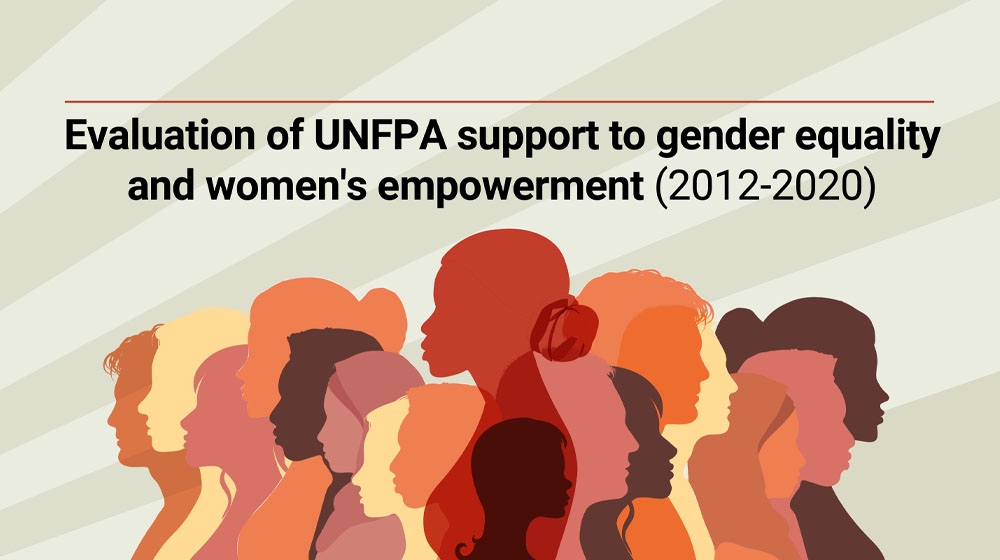
Evaluation of UNFPA support to gender equality and women's empowerment (2012-2020)
Resource date: 22 April 2021
The first evaluation of UNFPA support to gender equality and women’s empowerment assesses the organization’s efforts around gender mainstreaming and its performance on the dedicated gender equality outcome area, throughout the past nine years, covering three strategic plan cycles. It also determines whether the institutional systems and processes at UNFPA are fit for purpose to advance gender equality and women’s empowerment. This triple focus of the evaluation extends across development and humanitarian contexts.
Watch key highlights of the evaluation and learn how UNFPA is using the evaluation recommendations to strengthen its support to gender equality and women's empowerment
The evaluation was undertaken during the COVID-19 pandemic and remained agile and adaptive to the realities on the ground. The independent evaluation finds that UNFPA has contributed globally to the advancement of gender equality through its focus on sexual and reproductive health and reproductive rights and its integrated approach. Several institutional processes and systems, including its organizational capacity, strategic leadership and advocacy, make UNFPA fit for purpose to deliver on gender equality and women’s empowerment in both development and humanitarian contexts. However, more strategic and longer-term partnerships and funding streams are required to push forward the gender equality agenda.
Data collection methods

The evaluation highlights the notable role of UNFPA in the global response to the increase in domestic violence and gender-based violence during the pandemic. Moving ahead, building resilience and creating deeper collaborations among UN agencies can provide more sustainable solutions to addressing gender inequality and intersectional inequities in all contexts.
Among several recommendations, the evaluation recommends UNFPA to leverage its areas of expertise in sexual and reproductive health and reproductive rights and population and data to develop a more integrated approach that connects its various mandate areas, focusing on strengthening social norm change work and gender-transformative approaches. UNFPA should continue to amplify its leadership and position in gender-based violence response and prevention in all settings.
The evaluation results provide a robust pathway to implement the UNFPA Gender Equality Strategy (2018-2021) and inform the new UNFPA Strategic Plan (2022-2025), in the context of the 2030 Agenda for Sustainable Development, so that all women and girls, including those furthest behind, have full rights to make choices in their lives.
For further information on the evaluation, please write to Marco Segone, segone@unfpa.org and Alexandra Chambel, chambel@unfpa.org.
Additional materials supporting the evaluation
Evaluation Report Volume 2 (Annexes)
Evaluation Report Volume 3 (Case studies)
Country case studies on Colombia, Côte d’Ivoire, Jordan and Malawi
Regional case study on Latin America and the Caribbean
Related download
-
EN
Evaluation Report
-
EN FR ES
Evaluation Brief
-
EN
Thematic Brief: Gender Mainstreaming
-
EN
Evaluation Presentation
-
EN
Executive Board Paper
-
EN
Management Response
-
EN
Statement by UNFPA Deputy Executive Director-Programme on the Management Response
-
EN
Statement by Director, UNFPA Evaluation Office to the Executive Board
-
EN
Joint Statement by 20 Member States at the Executive Board
-
EN
Statement by the United States of America at the Executive Board